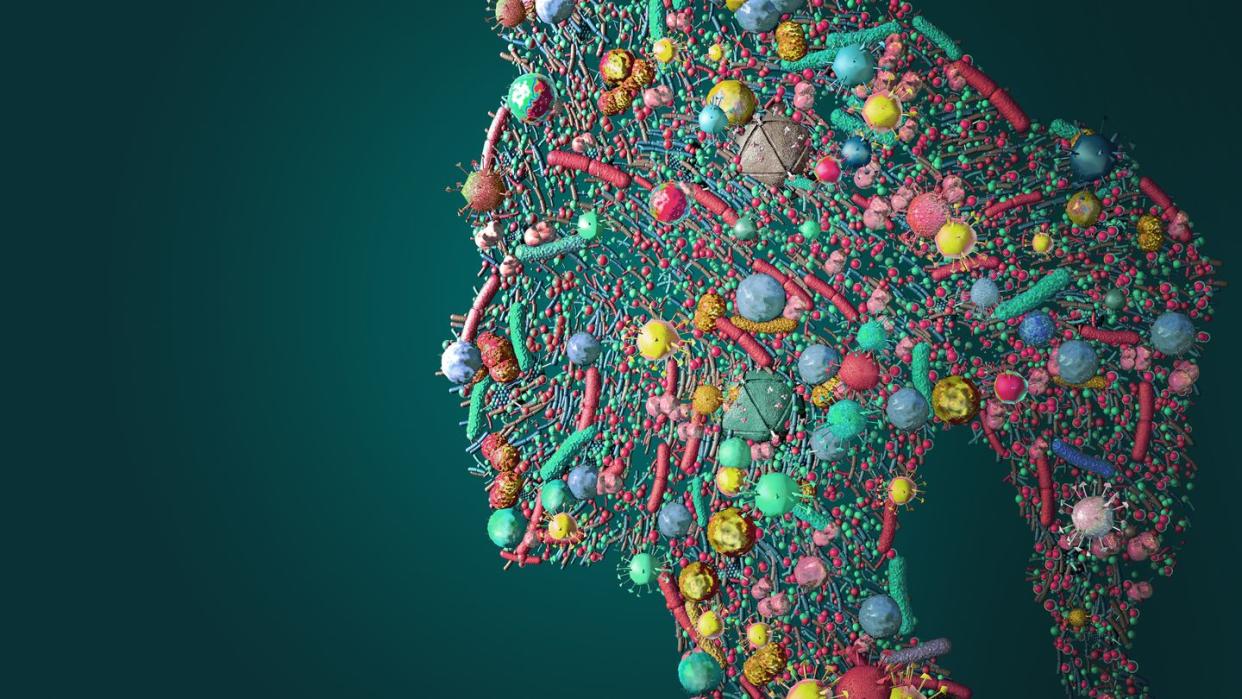Your Microbiome Will Outlive You

Researchers have found that your microbiome lives on after you die.
For a while, they use the byproducts of your cells breaking down to multiply rapidly and give themselves the best chance of survival post-host.
Then, it turns out that they partner with the microbes in the soil to further break down your body and return the nutrients to the ecosystem before moving on to find a new host.
Your body is absolutely full of microbes. But while we tend to think of things like harmful bacteria and viruses when we think about the creepy crawlies living inside of us, the majority of them are neutral, good, or even incredibly necessary.
But while, say, the tiny organisms that make up your all-important gut microbiome are essential to keeping your body alive and functioning, they aren’t a part of you in the way that your cells are. They are independent organisms along for the ride—they’re helpful, but they do their own thing.
And when you die, it turns out that they keep doing their own thing. According to a new research paper published in the journal Ecological Processes, not only do our microbiomes outlive us, they help break our bodies down for months or even years after we perish.
At first glance, it seems like they shouldn’t be able to live once their cozy human-body house shuts down. “Your microbes are adapted to the stable, warm environment inside your body where they receive a steady supply of food. In contrast, soil is a particularly harsh place to live,” Jennifer DeBruyn, one of the authors on the study, wrote in an article for The Conversation.
But according to the research of DeBruyn and her team, that isn’t what happens at all. In fact, right after an organism dies, their microbiome enters a period of rapid multiplication powered by the body’s cells turning on themselves.
Once cells aren’t getting oxygen anymore, they start to digest themselves in a process called autolysis. This produces a huge amount of food for the still-present microbes, who greedily eat it up and start multiplying. The goal—grow the population as much as possible so that it has the best odds of surviving when it has to find a new host.
But from there, interestingly, experts didn’t see a microbial stampede looking for a new host as fast as possible to avoid the cold of the soil and the competition of ground microbes. Instead, the microbiome of the decaying organism was found to join forces with the microbes of the ground in order to continue breaking down the body. They move from supporting the life of a host to being a helping hand in its recycling.
“Our newest study suggests that your microbes are not only living in the soil but also cooperating with native soil microbes to help decompose your body,” DeBruyn said in her Conversation article. “In the lab, we showed that mixing soil and decomposition fluids filled with host-associated microbes increased decomposition rates beyond that of the soil communities alone.”
The microbiome microbes turned out to be especially good at juicing the nitrogen cycle. Most of the nitrogen on Earth is pretty inaccessible to living beings, but our microbes are reportedly fairly efficient at converting nitrogen to a more useful form through the decomposition process.
The microbes will eventually move on to try and find another warm and stable host to live in, and the cycle will begin anew. But it turns out they’re not in as much of a rush as we would have thought. Even though you don’t need them anymore, for a while, they still need you.
You Might Also Like
